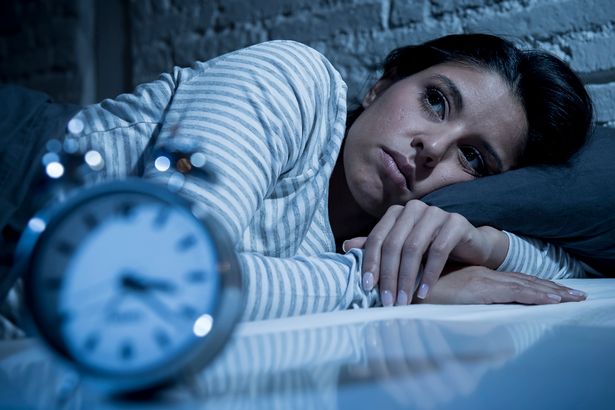Why you should always lift your bag off the floor – and 13 other life hacks – Mirror Online
Whether we realise it or not, we make lots of tiny mistakes each and every day.
For example, did you know that 90% of Brits follow bad practices before bed? Caffeine, booze and use of electronic devices are the main offenders, according to a new survey by bed manufacturer Sealy.
And of the 70% of UK adults who have used free public Wi-Fi, more than half have entered passwords and used online banking, leaving them at risk of being hacked.
But there is good news – tiny mistakes need just tiny changes to put them right. Here we explore how to correct these common errors…
Ban the snooze button

It’s certainly tempting to put the alarm on snooze to grab an extra 10 minutes.
“But by dozing off again, we’re preparing our bodies for another sleep cycle, which is then quickly interrupted – causing us to feel fatigued for the rest of the day,” says Holly Housby, sleep expert at Sealy UK.
Unplug your charger
Electrical appliances kept plugged in when not in use are a major cause of wasted energy. Phone chargers can cost up to £80 a year in unused energy.
Wait before mouthwash

“Never swill mouthwash straight after brushing – it just removes the protective fluoride from the toothpaste,” warns Dr Mark Buddha, director at MyClinique Dental.
Reduce waste
Every year Brits throw away 720 million eggs and 80 million pints of milk because of our reliance on best-before dates, according to research by Too Good to Go.
Dairy brand Arla is now planning to scrap use-by dates on milk, encouraging customers to sniff or taste it instead.
You can also try the egg test. A fresh egg will sink to the bottom of a bowl of cold water and lie on its side. Eggs nearing expiration – but still fresh enough to eat – will sink and sit upright. Eggs that aren’t fresh will float.
Limit your social sharing
Less than half of Brits set their social media profiles to private, says online security firm McAfee.
The company’s chief scientist Raj Samani says: “And our research discovered that 60% of people disclose their location when posting online.
“Be careful what you post and increase privacy settings to ensure tagged posts are only shared with people you know and trust.”
Lead the way
Surgeons warn dog owners not to wrap leads around their fingers or wrist because of the dangers of laceration, friction burns, fractures and ligament injuries.
Avoid public Wi-Fi

Fake Wi-Fi hotspots allow cybercriminals to eavesdrop on users and steal usernames, passwords and bank details.
They often have innocuous sounding names such as “airport wi-fi” and can redirect victims to malicious malware and phishing sites.
Genuine public networks ask the user to agree to the terms and conditions of accessing the Wi-Fi so an immediate connection could signal an unsafe connection.
Always ensure the web address bar reads HTTPS instead of HTTP and check for a padlock. This means that the data is encrypted.
Reduce email time
A new study of 2,000 office workers found they typically spend around two hours each day browsing their inbox – wasting 30 work days a year.
But each time you stop to read or respond to an email it takes between three and 23 minutes to get your focus back on to what you were previously doing.
Turn off notifications and batch-check your emails at allocated times.
Lift your bag off the floor
There are more germs on the floor of a public toilet than on the toilet seat itself, so hang your bag on the hook in public loos. And clean it regularly with disinfectant wipes.
Choose different passwords
Password management company Dashlane analysed more than 61 million passwords and discovered many of us use obvious ones, or “password walk” (when we walk our fingers over the keys close to each other to create a pattern) – making hackers’ jobs very easy.
In fact, the most commonly selected password is “123456”.
Leave your desk at lunch

Office workers only manage to take an average of 16 minutes each day for lunch, according to a recent study.
Apart from the obvious benefits of taking a break from sitting, our brain needs time to refresh.
Exercise right

Yes, exercise is good for us. But poor form can be damaging.
The plank is an effective exercise for developing your core strength, but doing it wrong can hurt your back. According to experts, the common mistake is sagging at the hips or raising the bottom too high.
A collapsing back also puts too much pressure on your lower back, which can lead to pain.
Guidelines for common exercises can be found here.
Mix it up
A recent study found that 60% of Brits eat the same foods every day – with one in 10 eating the same cheese or ham sandwich for lunch.
But even if your diet is healthy, it’s not always good for your gut.
“The digestive system needs a wide range of food in order to absorb the wide variety of nutrients and minerals we need,” says Dr Anton Emmanuel, consultant gastroenterologist at University College Hospital London.
Round and round
When you heat food in containers that aren’t round, the corners tend to heat up a lot faster than the middle, causing some parts of the food to be over or under-cooked.
A round container will heat up all areas at around the same time.




